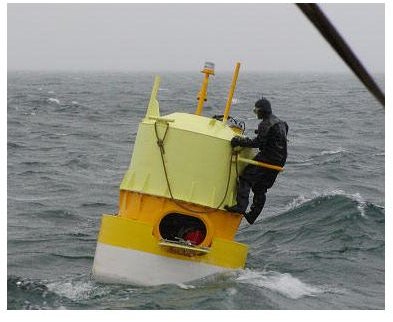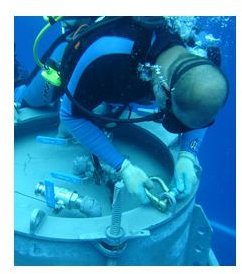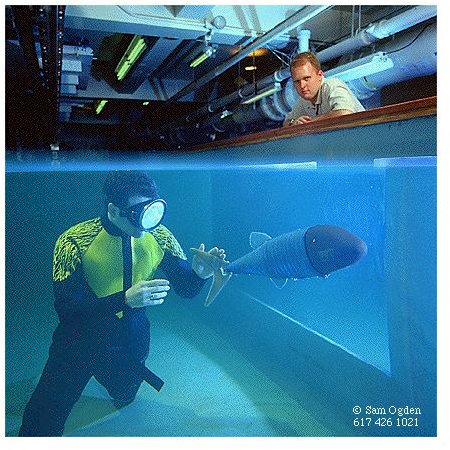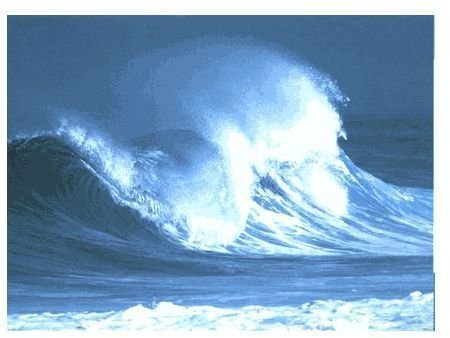Deep ocean engineering: Learning about the technical aspects of the deep oceans
Deep Ocean Engineering
We live on the planet Earth, which when seen from space, looks uniquely blue in color. This is because of the oceans. It is a well known fact that 3/4 th of the surface of the Earth is covered by oceans, but do we really know much about oceans & their characteristics?
We live on the land, and are increasingly consuming all the natural resources. Hence the scientists started look towards the oceans, which led to deep sea oil extraction. Again its getting depleted. Scientist now look at the oceans for other resources. This is because almost 90 % of the ocean resources are till now untapped and unknown. Thus oceans are an immense reservoir of untapped energy.
Even though we can’t use the sea water for drinking purpose directly, it contributes in many ways for maintaining the Eco-system. Oceans and seas provide immense potential for trade and commerce in the form of cargo transportation and leisure cruising. How to tap the full potential which lie within the oceans in the form of hidden energy and other resources? The branch of study that tries to answer these questions related to oceans is known as “Ocean Engineering”.
What is it all about?

Ocean Engineering is all about harnessing & working with the power of the oceans. There is a lot of ambiguity amongst the common people regarding the exact domains of oceanography, ocean engineering, ocean physics, offshore engineering and so on. Actually the term ocean engineering is an ambiguously coined phrase, but may refer to oceanographic engineering. At the same time oceanographic engineering itself is a combination of various disciplines such as marine electronics engineering applied to support the work of oceanographers. On the other hand, it may be referred to Offshore engineering or maritime engineering, which again is a allied branch of civil engineering, which deals with the offshore fixed & floating structures. It also includes drilling/production of natural resources like oil & gas from the sea bed. The extraction of oil & gas may fall under the category of ocean renewable energy. I really hope the above description has cleared some of your doubts regarding the differences between these unique yet closely inter-related and inter-mingled branches of engineering.
The Society Of Naval Architects & Marine Engineers(SNAME) describes the work of “Ocean Engineers” as follows:
Ocean Engineers investigate the action of ocean environment on ships and other marine vehicles & structures like oil rigs, submarines, FPSO’s etc.They also design & operate Ocean platforms, or manned or remote-operated vehicles used for deep sea exploration.

If you have seen the movie “Titanic”, the research team used a deep sea under water diving vessel which is remotely controlled, for finding the parts of ships wreck. This is a good example of the type of projects involved in ocean engineering.
Ocean engineering blends with offshore engineering, except for one division. Offshore engineering deals with offshore platforms, oil rigs and even berths, jetties etc. But ocean engineering in addition to offshore engineering deals with the sub-sea floating objects and platforms, near shore piers,sewer outfalls as well as common offshore structures such as petroleum drilling and operating platforms. It should also be noted that the construction, design and operation of ships does not come under ocean engineering.
Research opportunities

The field of ocean engineering also relates to phenomenon associated with natural events and calamities in the oceans, and this often leads the ocean engineers to develop new sophisticated equipments for safety. For example after the severe strike of Tsunami and hurricanes, ocean engineers have developed Tsunami warning buoys which detects changes in wave/swell forces in the ocean. They also have opportunities to research on the pollution prevention techniques from ships by oil and chemicals and their control. They have opportunities to frame ideas to prevent coastal erosion. The recent trend for the world to look for renewable resources as energy for powering the world have lead the ocean engineers to find methods to generate power from the tides and waves.
Institutions offering Ocean Engineering
These are some of the well-known Institutions offering Ocean Engineering course:
- Florida Atlantic University
- Florida institue of technology, University of Florida
- M.I.T
- United States Naval Academy
- Southampton Universit
- Newcastle University
- Liverpool John Moores University etc.
Image Credits:
bing images
www.k-grayengineeringeducation.com
